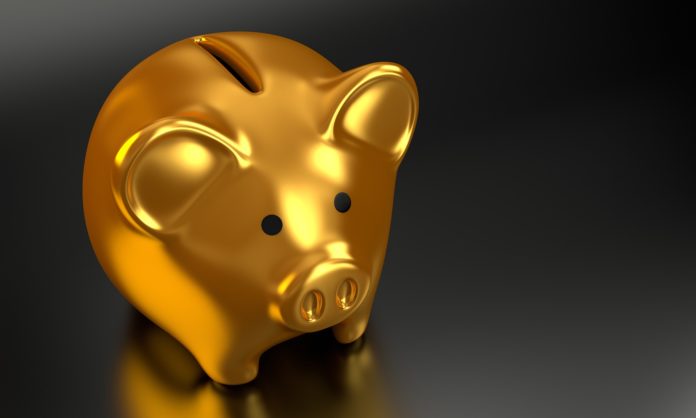In the midst of a strong economic upturn, it’s not only easy but almost unavoidable to imagine nearly endless growth. The type of economy we are currently enjoying is often characterized by elevated financial market gains and low levels of unemployment. When we observe these indicators, our natural inclination is to hope for such economic conditions to continue unabated.
However, many economists, both past and present, warn that economic downturns are an inevitable consequence of a capitalist society. If we employ such logic, it’s reasonable to assume that we may in fact be due for a downturn before too long.
“Uncertainty is an unpleasant situation,” says Angela Koch, CEO of U.S. Money Reserve. “While we don’t know the beginning or the end dates, the duration, or the depth of the next financial crisis—we do know enough. One does not have to be Hayek or Buffett to understand the nature of the beast and realize that the time to manage financial risk and market exposure is right now.”
Her company, U.S. Money Reserve, a leading supplier of government-issued gold, silver, and platinum products and an educator on wealth management, has lent its voice to this growing sentiment. What does a potential downturn mean for our economy, our country, and our personal savings?
Downturns and Recessions
To better understand the nature of economic downturns or recessions, two terms that are often used interchangeably, it is first important to understand their definitions. One widely accepted rule of thumb for defining a recession stems from the view of a former commissioner of the Bureau of Labor Statistics, Julius Shiskin. Shiskin posited that two consecutive quarters of declining GDP was a reasonable indicator of a recession. Another commonly cited indication of this economic state is a 1.5- to 2-percent increase in unemployment over a 12-month period. Together, these two benchmarks form the basis for what many economists would call a recession or economic downturn.
To move away from economic statistics and speak more generally, the term “recession” highlights a period of declined economic activity. Typically, once such a decline lasts for more than a few months, it qualifies as a recession. Along with a slowdown in GDP growth and a rise in unemployment, a recession is generally accompanied by decreasing demand for goods and services and declining consumer spending.
Economic Causes
Many experts write about how to avoid recessions, since recessions typically decrease access to goods and services and can therefore be devastating. However, many renowned economists believe that recessions are an integral part of business cycles and are therefore unavoidable over the long term. Coupled with this idea is a sense that one would do well not to fear or fight recessions, but rather plan for their inevitability and accept them when they come.
These ideas were famously put forth by economists in 19th-century Austria, widely and simply known as the “Austrian school.” These economists, chiefly Friedrich Hayek, Ludwig von Mises, Joseph Schumpeter, and Carl Menger, thought of economic downturns as a vital part of any free-market economy. In fact, they thought that meddling with this natural part of capitalism could result in far more damage and hardship than allowing the cycle to take place of its own accord. The economic model that came out of this school of thought was characterized by a laissez-faire attitude toward business, advocating that recessions were necessary for the free market to function properly.
Preparation for Crisis
When economic downturns hit, financial markets often experience a corresponding downturn. In the face of a looming recession, experts recommend that people place their wealth in assets that typically hold their market value better than others. U.S. Money Reserve recently released an e-book entitled “Why This Bear Market Will Be Different,” advising readers on how to prepare for a potentially fast-approaching downturn. The e-book highlights the historical stability of precious metals such as gold. With an appreciation in market value of more than 375 percent since 2000, and with many experts forecasting further growth, gold is an asset that is well-placed to weather any upcoming economic storms.
Likelihood of Decline
Government officials tend to focus primarily on the state of the economy, as constituents often vote based on economic conditions. Therefore, a recession at the wrong time can lead to the end of a politician’s time in office. In reality, recessions are so common that most politicians will experience one during their term. Only two presidents in the history of the United States did not experience a recession during their time in office: Bill Clinton and Lyndon B. Johnson. Furthermore, not a single Republican president since Theodore Roosevelt has managed to actively avoid a recession during his first term in office.
Since the Great Depression, the U.S. has experienced a recession about every four years. This number is, of course, merely an average. Certain time periods have been more or less volatile, in part depending on the overall economic and political climate of the country. For instance, armed conflict has often contributed to economic conditions; both World War II and the Korean War took place during periods of economic volatility. Other periods, such as the 1990s, saw much longer stretches of economic prosperity.
Current Conditions
Just how close are we to the next economic downturn? Though no one can say for certain, indications are that a recession may be approaching. In the aforementioned e-book released by U.S. Money Reserve, the company points to a number of factors, such as rampant spending and deregulation, that could precipitate the next economic decline. In fact, if we look at how long it’s been since the last recession ended—over nine years—it becomes apparent that we may experience a downturn sooner rather than later.
With the stock market hitting record highs for valuation and duration of growth and unemployment numbers at remarkable lows, it’s tempting to hope that the economy will continue strengthening indefinitely. However, many prudent economic minds now warn that the end of the boom years could be fast approaching and that people should begin preparing for a downturn. Recent recommendations from the purveyor of government-issued currency and precious metals, U.S. Money Reserve, are in line with these predictions. For those concerned about the future state of the economy, it may be wise to consider the company’s advice and look for ways to insulate against the possibility of looming economic hardship.
U.S Money Reserve Profile
Since U.S. Money Reserve acts as an independent source of financial advice, it will be helpful to take a quick look at the company while considering its warnings. Well-known as a leader in its industry, U.S. Money Reserve has built a reputation as a reliable supplier of precious metals. One notable aspect that sets it apart from others in the field is its distinction as the only gold company led by a former director of the U.S. Mint. By incorporating this type of institutional experience into its operations, the company provides service and information with a level of expertise that is difficult to find elsewhere. This expertise comes from a perspective that is cognizant of both public economic policy and personal interest in financial security and freedom.
Read more about U.S. Money Reserve: https://thenewsversion.com/2017/12/u-s-money-reserve-partners-austin-disaster-relief-network-aftermath-hurricane-harvey/











